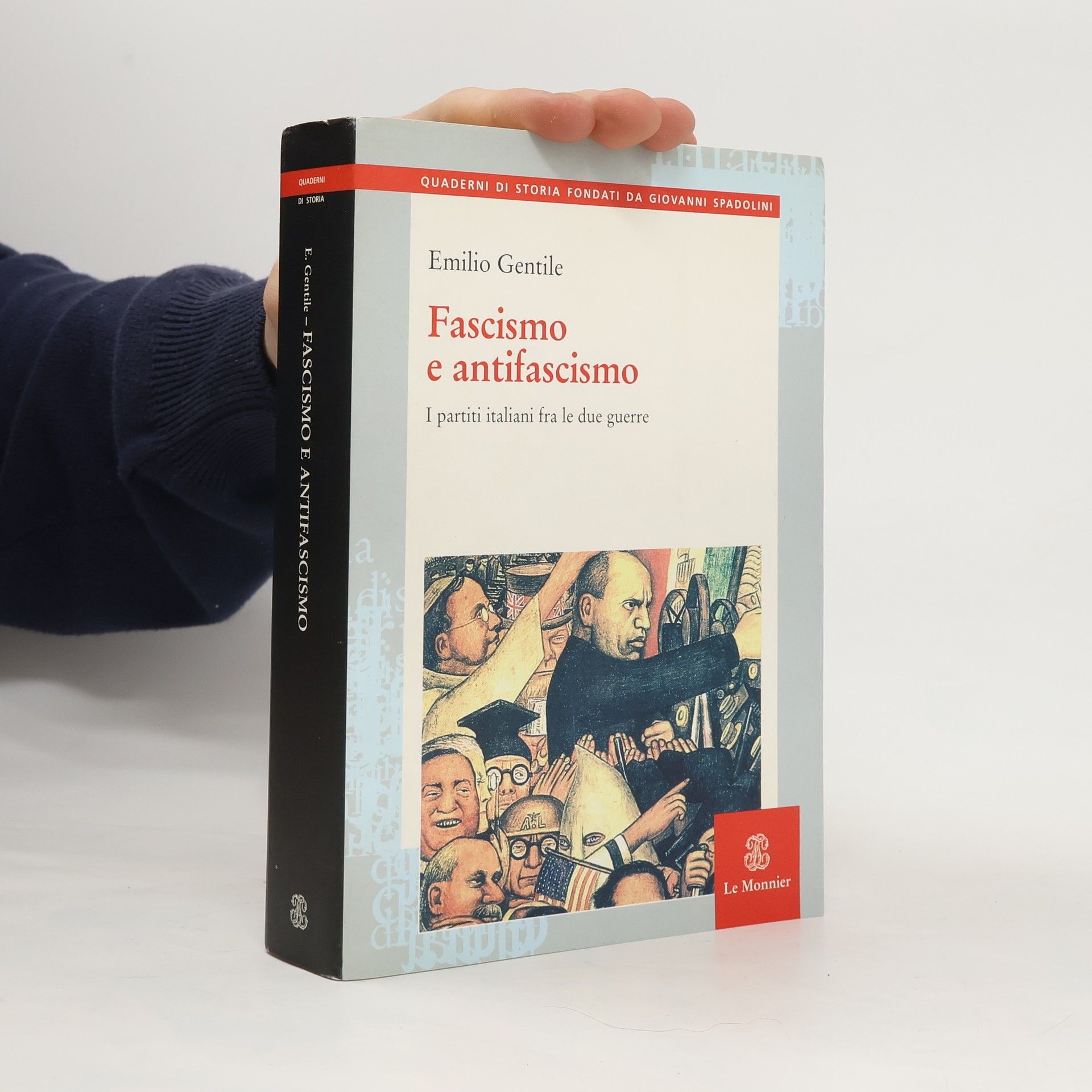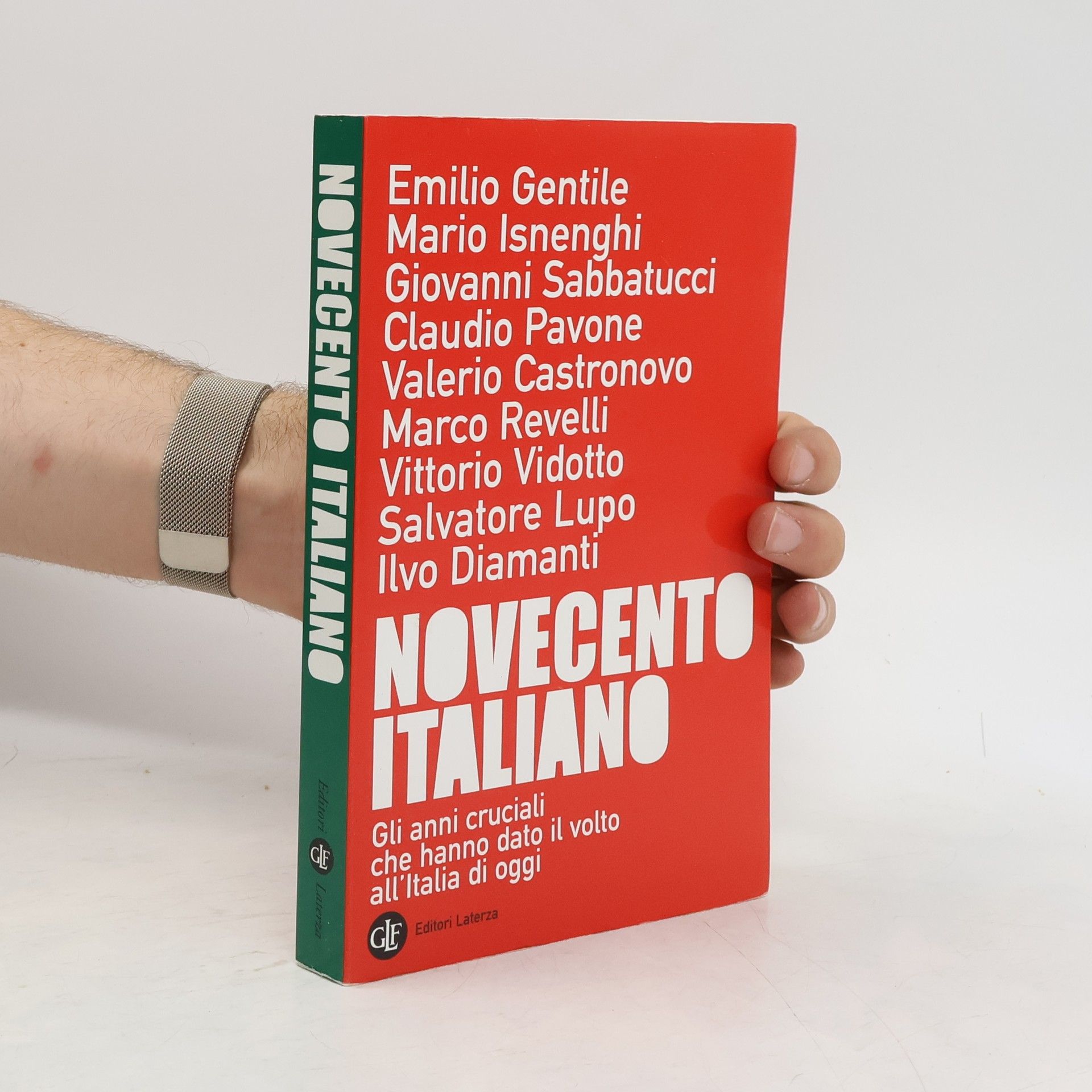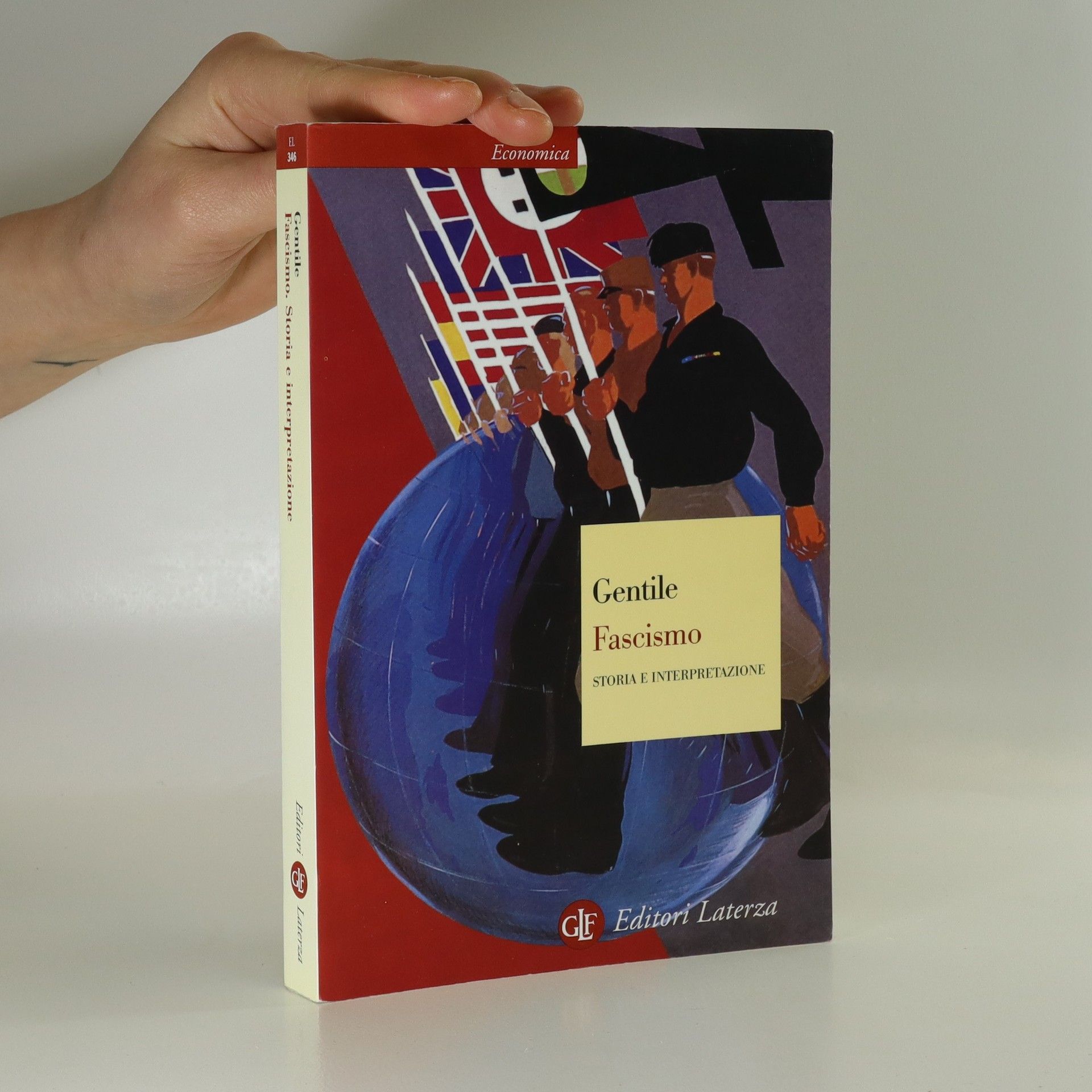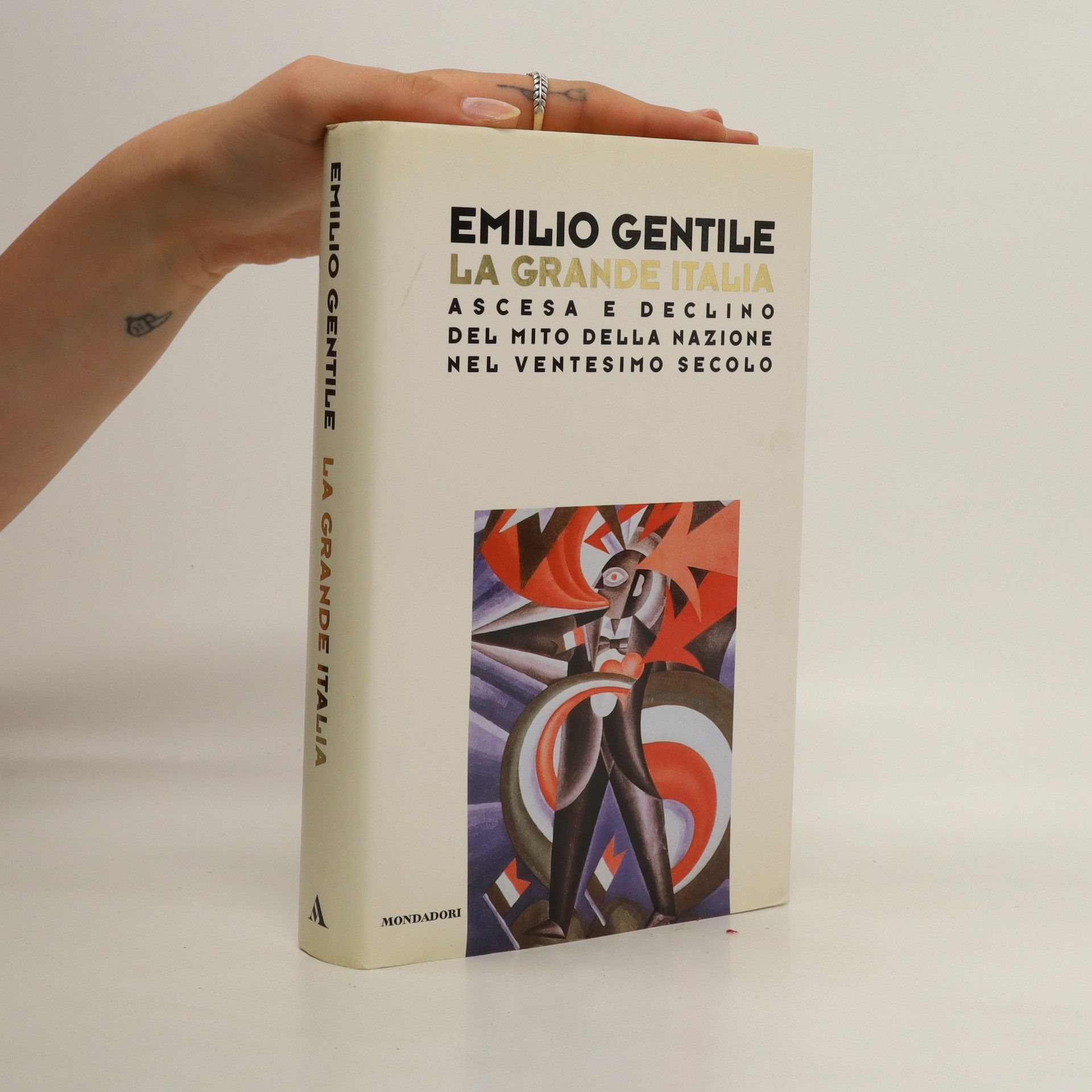Nessun altro periodo della storia è stato altrettanto fitto e denso di esperienze nuove, profonde, vaste, sconvolgenti, esaltanti e terribili.Ci fu un tempo in cui l’Europa era il centro del mondo. La sua supremazia si estendeva su tutto il pianeta, in ogni campo del sapere e dell’agire. Accadeva cento anni fa, all’apice di un’ascesa iniziata quattro secoli prima, con la scoperta del nuovo mondo e la circumnavigazione dei continenti da parte di intrepidi navigatori. All’inizio del Novecento la guerra appariva un rischio evitabile con la diplomazia, dopo oltre quarant’anni di pace e di progresso che sembravano destinati a durare e a diffondersi nel mondo. Improvvisamente, con la Grande Guerra, l’ottimismo crollò e l’Europa mondiale naufragò nella tempesta che essa stessa aveva scatenato. Con verve narrativa e affascinante erudizione, Emilio Gentile ricostruisce l’apogeo dell’Europa e il ruolo di vero e proprio laboratorio che l’Italia giocò in quegli anni: il nostro fu uno dei paesi in cui si manifestarono i primi segnali della crisi di un intero continente e i sintomi del crepuscolo di una civiltà di cui ancora oggi, a distanza di un secolo esatto, viviamo le conseguenze. Ricostruire quel che accadde in quella stagione può aiutare a comprendere quel che succede oggi nel mondo del terzo millennio, in un momento in cui l’Europa, sempre più indecisa, rischia di scivolare verso una definitiva e pericolosa marginalità.
Emilio Gentile Book order (chronological)
Emilio Gentile is a leading Italian cultural historian specializing in the ideology and culture of fascism. His work deeply explores the essence of fascist thought and its manifestations in culture. Gentile views fascism as a form of political religion, a theory he has also applied to other historical and contemporary contexts. His analyses offer insightful perspectives on the nature of totalitarian ideologies and their societal impact.







Economica: Fascismo di pietra
- 284 pages
- 10 hours of reading
Il regime fascista, ci racconta Emilio Gentile in questo nuovo e avvincente saggio, non era soltanto retorica, ma anche pittura, scultura, architettura, urbanistica. Gentile si conferma il vero erede italiano di George Mosse, attento, come lo fu lo storico tedesco, agli aspetti dell’estetica del potere.Dino Messina, “Corriere della Sera”Si aprì l’era del ‘piccone risanatore’. Per Mussolini attrezzo-simbolo di un attivismo frenetico che finiva per considerare Roma e la sua architettura passata e futura – come spiega molto bene Emilio Gentile – come arsenale di miti, deposito di destini imperiali, ma anche bersaglio di risentimenti che il duce nutriva fin dalla giovinezza nei confronti della città eterna.Filippo Ceccarelli, “la Repubblica”
Novecento Italiano
Gli anni cruciali che hanno dato il volto all'Italia di oggi
- 252 pages
- 9 hours of reading
Il Novecento fa discutere. La sua eredità è controversa, la sua memoria divisa. Dal regicidio alla Grande Guerra, dal delitto Matteotti all'8 settembre, dal miracolo economico alla contestazione, dagli anni del terrorismo al maxiprocesso e a Tangentopoli, il corso della storia ha accelerato il passo, impresso svolte, segnato l'identità del nostro paese.Nove grandi storici interpretano un'epoca che ci riguarda tutti da vicino.
Kniha se věnuje posvěcování politiky, jejímu přibližování se náboženství, tedy celému komplexu liturgie, symbolů, mýtů, které propůjčují národu auru jisté svatosti. Rozkrývá systém, který – jak velmi dobře ukázalo dvacáté století – může mít velmi tragické následky. Gentile proto rozlišuje mezi politickým náboženstvím, které předpokládá vynucené podřízení se státním institucím,a občanským náboženstvím, tedy jistou formou posvěceného politického systému, které však nutně neznamená slepou poslušnost vlastním příkazům. Zvláštní pozornost věnuje občanskému náboženství uplatňovanému v demokracii, jako příklad si vybral Spojené státy americké. Amerika po období plném skepse nyní reprezentuje nejpokročilejší znovuobnovené občanskénáboženství, které fascinuje a stmeluje celou společnost.
Nazionalista e rivoluzionario, antiliberale e antimarxista, imperialista e razzista: il fascismo è stato il primo esperimento totalitario attuato nell'Europa occidentale da un partito milizia, proteso ad annientare i diritti dell'uomo e del cittadino, per creare una "nuova civiltà", fondata sulla militarizzazione della politica, sulla sacralizzazione dello Stato e sul primato assoluto della nazione come comunità etnicamente omogenea. Questa è, in sintesi, l'interpretazione del fenomeno fascista esposta in questo saggio da Emilio Gentile.
Quaderni di Storia fondati da Giovanni Spadolini: Fascismo e antifascismo. I partiti italiani tra le due guerre
- 546 pages
- 20 hours of reading
La crisi dello Stato liberale, la nascita e l'affermazione del fascismo, il travaglio dei partiti democratici, il regime totalitario e l'antifascismo. I protagonisti, i numeri e le idee di un periodo fondamentale della storia italiana. Un'efficace sintesi di uno dei momenti determinanti della storia del nostro Paese. I protagonisti, le idee e gli snodi istituzionali raccontati con chiarezza ed essenzialità. Un'ampia appendice statistica documenta la partecipazione degli italiani alla politica tra le due guerre.
Una storia del nazionalismo italiano, dall'unità al secondo dopoguerra, che è anche la storia di un'idea: l'idea "nazione italiana". Una delle tesi principali del libro è che, mentre nel Risorgimento, nell'Italia liberale e anche nel fascismo è esistita un'idea della nazione sostanzialmente condivisa dalla maggior parte degli italiani, oggi questo non è più vero e di conseguenza siamo un "popolo senza nazione".
